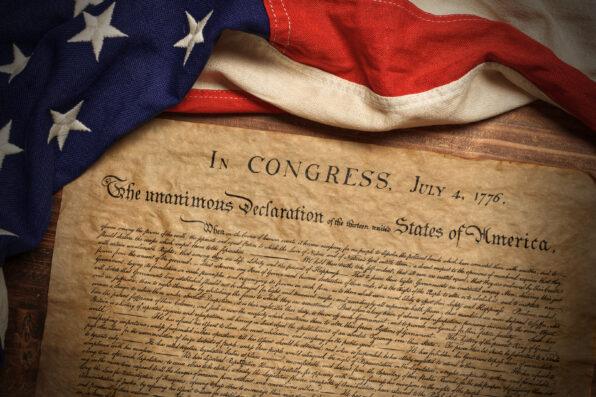Did You Know That There Is A Woman Whose Name Is On The Declaration of Independence?

Did you know that there is a woman whose name is on the Declaration of Independence?
While she may not have signed in the same section as the founding fathers, Mary Goddard played an important role in the American Revolution and in passing the declaration to the 13 colonies.
Mary Katherine Goddard was one of America’s first female publishers. She was born in Connecticut in 1738 into a family of printers and publishers. In the 1770s, Mary’s brother, William, left her in charge of various publications while he developed his own postal system, including the Pennsylvania Chronicle and the Maryland Journal.
During the build-up to the American Revolution, Mary began publishing articles about revolutionary battles, protests, and blockades. Her coverage was incredible and thorough.
In July of 1775, the Continental Congress adopted her brother’s postal system, and that October, she was named the postmaster of Baltimore, making her the first woman postmaster in the colonies and most likely the first female employee of the United States as it was becoming an independent nation.
In January of 1777, she was given a great task. By then, the Declaration of Independence was finished and signed but needed to be copied and distributed throughout the 13 colonies. Mary was the woman who got the job done.
Every newspaper Mary published had her name signed at the bottom as M.K. Goddard. But when it came to printing the declaration, she decided to sign each copy with her full name. If you look at an image of the Declaration of Independence at the bottom, it says, “Baltimore, in Maryland: Printed by Mary Katharine Goddard.”
Many scholars believe that Mary did this to secure her place in history and give herself the credit she deserved for carefully working with and distributing what is considered one of our nation’s most important documents.
Unfortunately, Mary didn’t stay on top of the publishing business for long. In 1784, her brother returned to Maryland Journal and took over her position as publisher. She stayed on as the Postmaster General for five more years, but then Samuel Osgood took over the role in 1789 and claimed it wasn’t a good job for women.

ID 170865976 – © Michael Flippo – Dreamstime.com – illustrative purposes only
Mary fought hard to get her job back and was supported by 200 Baltimore residents who signed a position to reinstate her as Postmaster General. She even wrote to George Washington and the Senate but was ignored.
For the last two decades of her life, Mary ran a bookstore in Baltimore and sold dry goods. She passed away in 1816 at 78.
While Mary was dealt a bad, misogynistic hand during her later years, she will forever live on in history as the only woman included on the Declaration of Independence.
If true crime defines your free time, this is for you: join Chip Chick’s True Crime Tribe
Sick of Living In Chaos? Turn Your Pantry From Messy To Meticulous With These Organization Tips
Her Roommate Slept With Her Date Behind Her Back On The Same Day That She Went Out With This Guy
Sign up for Chip Chick’s newsletter and get stories like this delivered to your inbox.
More About:Chicks We Love